
Advancing Health Equity Through Telehealth: AAMC Learning Series
-
Register
- User - Free!
Through this learning series, the AAMC aims to highlight the role of academic medicine in promoting and advancing health equity through telehealth. Key elements of the series will focus on understanding the impact of telehealth on equity and access to care, the role data can play in improving telehealth access, highlight healthcare leaders approaches in digital equity, and evolving best practices that are being used by health systems to improve digital health literacy and narrow the digital divide. Questions? Please contact telehealth@aamc.org.
Register for all sessions in this series by clicking the green register button above.
-
Contains 1 Component(s)
Drawing from their research on Bridging the Digital Health Divide, their 2021 JAMA commentary “Focusing on Digital Health Equity,” and recently completed work, our speakers will outline approaches to mitigate the risks of digital health tools with specific action steps for health system leaders and providers.
This is part of the Advancing Health Equity Through Telehealth: AAMC Learning Series.
The benefits of digital health tools are many—timely access to providers, better care management through monitoring, more convenience for patients, and so on. Yet, many adults in the U.S. face barriers to digital health tools and technology and are being left behind. As academic medicine begins to integrate digital health tools and use them across the mission areas—patient care, research, training, and community engagement—health system leadership, providers, researchers, and educators must understand the risks that could exacerbate today’s health disparities and how to address them. For academic health systems to continue being leaders in innovation while also meeting the needs of underserved communities, providing digitally inclusive care will be crucial.
Drawing from their research on Bridging the Digital Health Divide, their 2021 JAMA commentary “Focusing on Digital Health Equity,” and recently completed work, our speakers will outline approaches to mitigate the risks of digital health tools with specific action steps for health system leaders and providers.
Register here to access other session recordings in the series.
Courtney Lyles, PhD
Associate Professor, University of California, San Francisco (UCSF)
UCSF Center for Vulnerable Populations
UCSF Division of General Internal Medicine at ZSFG
UCSF Department of Epidemiology and Biostatistics
Co-Founder, SOLVE Health TechUrmimala Sarkar, MD, MPH
Professor, General Internal Medicine, University of California, San Francisco
Associate Director, UCSF Center for Vulnerable Populations
CO-Founder, SOLVE Health Tech -
Contains 1 Component(s)
This workshop will highlight work at Johns Hopkins Medicine through the perspective of several health system collaborators and their approaches to identifying, collecting, and acting on metrics to understand telehealth’s impact on access to care for all patients.
This is part of the Advancing Health Equity Through Telehealth: AAMC Learning Series.
With the rapid increase in telehealth utilization in the spring of 2020, many health systems quickly deployed outpatient telehealth services in a matter of weeks. Two years later, outpatient telehealth remains a routine part of outpatient care delivery across the country. This rapid transformation left little time to design and tailor solutions to meet the needs of all patient populations, in some cases exacerbating access disparities which existed before the pandemic.
Dynamically understanding and addressing access barriers to telehealth services can support health system efforts to ensure equitable access to care for all patients. This workshop will highlight work at Johns Hopkins Medicine through the perspective of several health system collaborators and their approaches to identifying, collecting, and acting on metrics to understand telehealth’s impact on access to care for all patients.
Register here to access other session recordings in the series.
Yvonne Commodore-Mensah, PHD, MHS, RN
Associate Professor, Johns Hopkins University School of Nursing
Faculty, Johns Hopkins Center for Health EquityBrian Hasselfeld, MD
Medical Director, Digital Health and Telemedicine, Johns Hopkins MedicineHelen Hughes, MD, MPH
Associate Medical Director, Office of Telemedicine, Johns Hopkins MedicineEmmanuel Opati, MBA, MHA
Assistant Administrative Director, Office of Telemedicine, Johns Hopkins Medicine -
Contains 1 Component(s)
Speakers will discuss how tools like eConsults and Project ECHO can enable health care equity, as well as potential risks, and share opportunities for assessing and improving equity within these programs.
This is part of the Advancing Health Equity Through Telehealth: AAMC Learning Series.
Health systems have deployed many strategies and tools to promote equitable access to specialty care. Through the AAMC’s Project CORE (Coordinating Optimal Referral Experiences), over 40 AMCs and children’s hospitals have focused on improving access to specialty care through enhancements to the referral process and use of eConsults. eConsults have been shown to enable timely access to specialty input, improve communication and coordination between providers, garner positive patient experience, and reduce costs of care. Project ECHO has also served as an important tool for promoting increased primary care-specialty care collaboration and has leveraged technology to remove some of the traditional barriers to specialty access including geography, travel, and costs. Speakers will discuss how tools like eConsults and Project ECHO can enable health care equity, as well as potential risks, and share opportunities for assessing and improving equity within these programs.
Register here to access other session recordings in the series.
Robert Rohloff, MD
Medical Director, Health Management and Community Services, Children’s WisconsinTim Poulson
Value and Risk-Based Product Manager, Children’s WisconsinMaggie McDonnell, MPH
Director, Oregon ECHO Network, Oregon Health & Science UniversityJonathan Betlinski, MD
Associate Professor, Oregon Health & Science UniversityLisa Chew, MD, MPH
Associate Professor, UW Medicine -
Contains 1 Component(s)
This webinar will highlight specific efforts that health systems are taking to eliminate the digital divide such as implementing digital health navigators, screening for the digital divide, and establishing community partnerships to support the development of digital literacy skills.
This is part of the Advancing Health Equity Through Telehealth: AAMC Learning Series.
Academic health systems are integrating telehealth to meet organizational priorities, patient demand, and as a way to improve access to care for many patient populations. Targeted efforts that focus on ensuring access to care via telehealth for under-resourced communities are essential to better address patients’ needs during the COVID pandemic, and to support more equitable outcomes in the future. This webinar will highlight specific efforts that health systems are taking to eliminate the digital divide such as implementing digital health navigators, screening for the digital divide, and establishing community partnerships to support the development of digital literacy skills. Strategic efforts like these are critical to ensuring that all patients have the necessary broadband and internet access, device access, and digital literacy skills and to narrow today’s existing digital divide.
Register here to access other session recordings in the series.
Pablo Buitron de la Vega, MD, MSc
Boston Medical CenterSaurabh Chandra, MD, PhD
University of Mississippi Medical CenterAnthony Cheng, MD
Oregon Health and Science UniversityCaroline Compretta, PhD
University of Mississippi Medical CenterKatie Moore, MPH
Mass General BrighamJorge Rodriguez, MD
Brigham and Women’s HospitalHans VanDerSchaaf, PhD, MPA
Oregon Health and Science University -
Contains 2 Component(s) Recorded On: 05/19/2023
Dynamically understanding and addressing school-based telehealth services can support health system efforts to ensure equitable access to care for pediatric patients. This workshop will highlight work at The Medical University of South Carolina (MUSC) and their school-based telehealth program, providing a thorough understanding of the approach, funding, modeling and the future for MUSC.
This is part of the Advancing Health Equity Through Telehealth: AAMC Learning Series.
The introduction of more virtual learning opportunities for students has created a need for school-based telehealth programming. Many health systems are working to deploy school-based telehealth services to provide care to pediatric patients in under resourced communities. This rapid shift to virtual learning has left little time to design and tailor solutions to meet the needs of pediatric populations, in some cases exacerbating access disparities that existed prior to the COVID-19 pandemic and creating lapses in health care services.
Dynamically understanding and addressing school-based telehealth services can support health system efforts to ensure equitable access to care for pediatric patients. This workshop will highlight work at The Medical University of South Carolina (MUSC) and their school-based telehealth program, providing a thorough understanding of the approach, funding, modeling and the future for MUSC.
Register here to access other session recordings in the series.
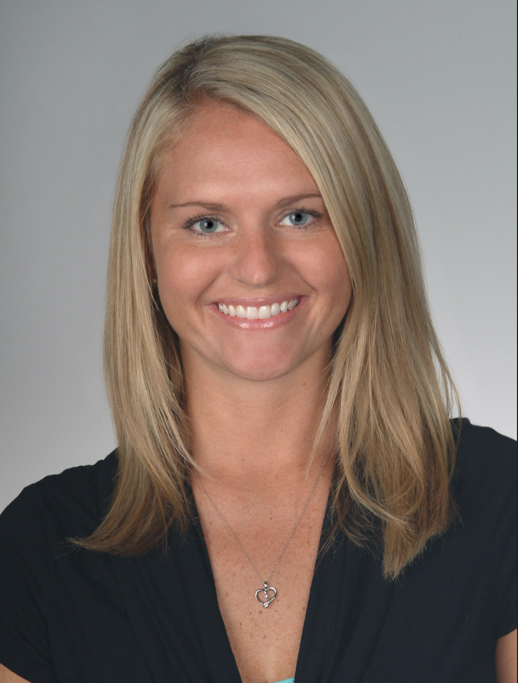
Claire MacGeorge, MD, MSCR
Medical Director, School-based Telehealth
Associate Professor, Pediatrics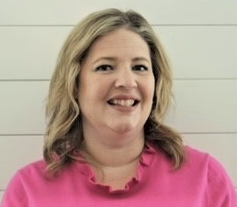
Erinn Kasubinski BSN, RN, MHL
Manager, School Based Telehealth
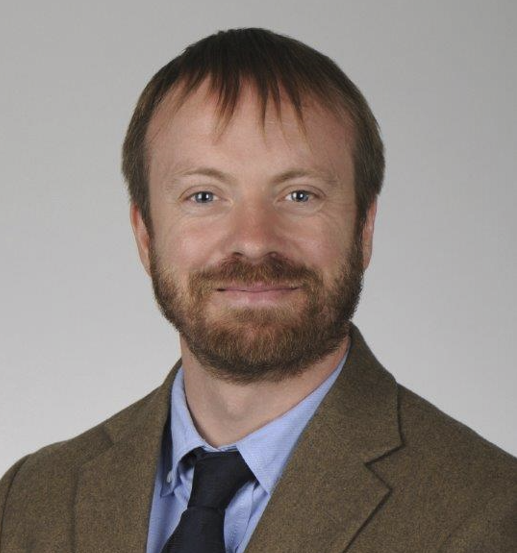
James T McElligott, MD
Medical Director, Center for Telehealth
-
Contains 2 Component(s) Recorded On: 08/07/2023
The Telehealth Equity Catalyst (TEC) Awards seeks to support member institutions in their efforts to advancing health care equity through telehealth and health technology in new and effective ways, while addressing barriers to care via telehealth that impact health and health care equity.
This is part of the Advancing Health Equity Through Telehealth: AAMC Learning Series.
The Telehealth Equity Catalyst (TEC) Awards seek to support AAMC-member institutions in their efforts to address barriers to telehealth and advance health care equity through innovative programing and creative use of telehealth and health technology. The following programs in this session demonstrate a commitment to removing barriers associated with the digital divide in telehealth and access for clinical delivery and medical training, particularly for underserved and under-resourced communities. Representatives from these programs will highlight how the TEC Awards have supported them in a successful campaign to expand access to telehealth and confront digital health disparities.
TEC Awards were launched as part of the AAMC’s efforts to support our members’ work to advance telehealth equity and serve as part of the AAMC’s strategic planning efforts to improve access to care for all. TEC Award applications for the 2024-2025 funding year will open in Spring 2024. For more information, please email telehealth@aamc.org.
Register here to access other session recordings in the series.
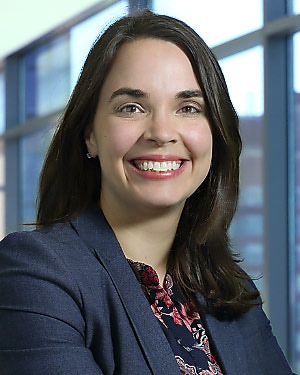
Helen Hughes, MD, MPH
Johns Hopkins Medicine
Medical Director, Office of Telemedicine
Medical Director, Pediatric Telemedicine
Assistant Professor of Pediatrics, Johns Hopkins University School of Medicine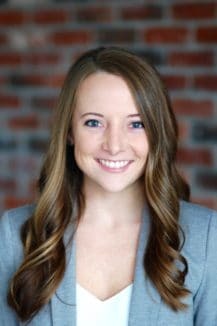
Katy Allison, PhD, MPH
University of Arkansas for Medical Sciences
Research Assistant Professor, Health Behavior & Health Education
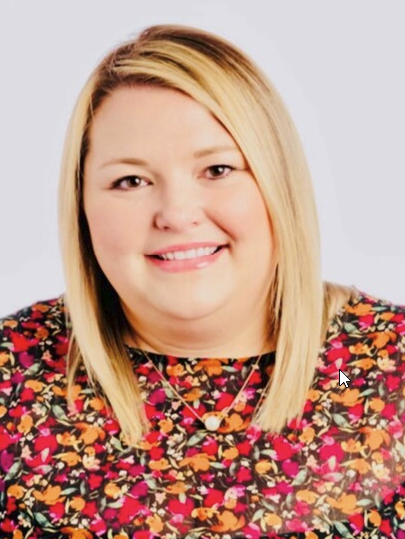
Sherrie Searcy, BSN, RN, SANE-A
University of Arkansas for Medical Sciences
Director of Operations for IDHI TeleSANE Program, Institute for Digitial Health and Innovation
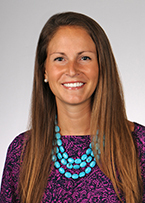
Cristin Adams, DO, MPH
Medical University of South Carolina
Primary Care Physician in Family Medicine
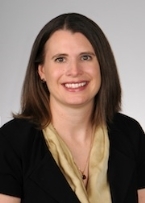
Ragan Dubose-Morris, PhD
Medical University of South Carolina
Associate Professor
Director of Telehealth Education, Center for Telehealth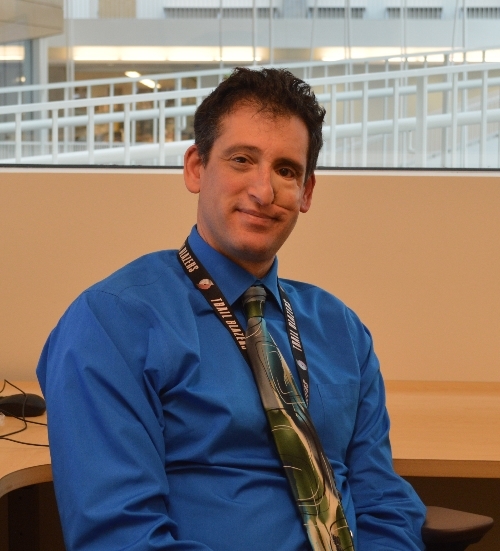
Jeff Gold, MD
Oregon Health & Science University (OHSU)
Professor of Medicine, Division of Pulmonary and Critical Care Medicine, School of Medicine
Medical Informatics and Clinical Epidemiology, School of Medicine -
Contains 2 Component(s) Recorded On: 08/16/2023
The Telehealth Equity Catalyst (TEC) Awards seeks to support member institutions in their efforts to advancing health care equity through telehealth and health technology in new and effective ways, while addressing barriers to care via telehealth that impact health and health care equity.
This is part of the Advancing Health Equity Through Telehealth: AAMC Learning Series.
The Telehealth Equity Catalyst (TEC) Awards seek to support AAMC-member institutions in their efforts to address barriers to telehealth and advance health care equity through innovative programing and creative use of telehealth and health technology. The following programs in this session demonstrate a commitment to removing barriers associated with the digital divide in telehealth and access for clinical delivery and medical training, particularly for underserved and under-resourced communities. Representatives from these programs will highlight how the TEC Awards have supported them in a successful campaign to expand access to telehealth and confront digital health disparities.
TEC Awards were launched as part of the AAMC’s efforts to support our members’ work to advance telehealth equity and serve as part of the AAMC’s strategic planning efforts to improve access to care for all. TEC Award applications for the 2024-2025 funding year will open in Spring 2024. For more information, please email telehealth@aamc.org.
Register here to access other session recordings in the series.
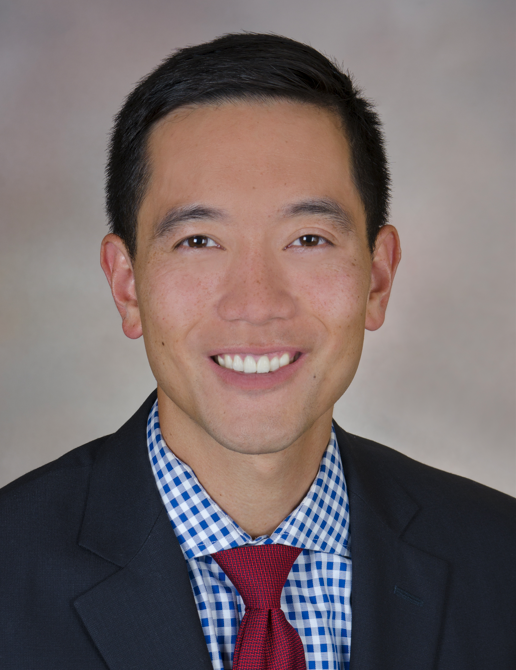
Anthony Cheng, MD
Oregon Health & Science University, School of Medicine
Assistant Professor of Family Medicine
Medical Director, Office of Digital Health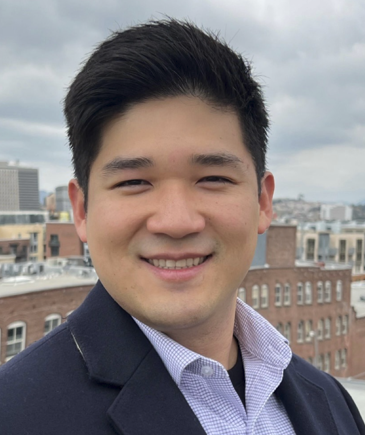
Jin Sol Lee, MD, MPH
University of Southern California, Keck School of Medicine
Clinical Assistant Professor of Medicine
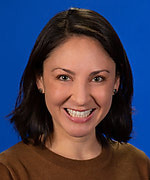
Jennifer Lynn Rosenthal, MD, MAS
University of California, Davis
Associate Professor, Department of Pediatrics
Faculty Director, Digital Health Equity and Process Improvement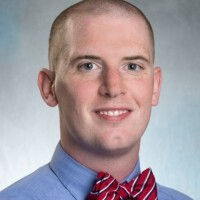
Christopher Nash, MD, EdM
Massachusetts General Hospital
Emergency Attending Physician
Medical Education Fellow – Graduated -
Contains 2 Component(s) Recorded On: 08/18/2023
Children’s Hospital Colorado will detail their process for recognizing patient needs, exemplify telehealth technology and workflow features that prioritize improving equity in patient population and provide a framework for fellow institution to create organizational approach for optimizing telehealth services to address diverse patient population needs.
This is part of the Advancing Health Equity Through Telehealth: AAMC Learning Series.
In the last few years, the use of telehealth services has become a rapidly utilized model of healthcare. As the utilization of telehealth services continues to grow there is an emerging need to create solutions that prioritize improving equity and addressing diverse patient populations. As health systems continue to grow their telehealth footprint meeting the needs of underserved communities and providing digitally inclusive care is crucial. The use of a health equity lens can help institutions to develop, execute and analyze the impact telehealth services on patient populations and, ultimately, identify and eliminate barriers.
Children’s Hospital Colorado has implemented their own health equity lens in their approach to telehealth at the health system and patient levels. Children’s Hospital Colorado will detail their process for recognizing patient needs, exemplify telehealth technology and workflow features that prioritize improving equity in patient population and provide a framework for fellow institution to create organizational approach for optimizing telehealth services to address diverse patient population needs.
Register here to access other session recordings in the series.
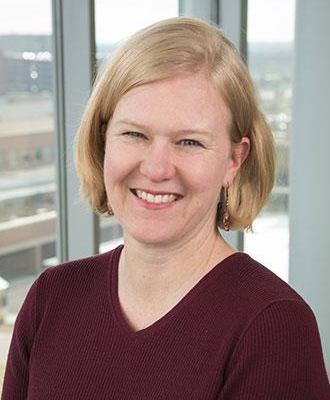
Christina Olson, MD
Telehealth Medical Director, Children’s Hospital Colorado
Associate Professor of Pediatrics & Telehealth Curriculum Director, University of Colorado, Anschutz Medical Campus -
Contains 2 Component(s) Recorded On: 11/27/2023
This session will feature a panelist of esteemed professionals and advocates working to ensure patients hearing speaking disabilities can access telehealth services.
This is part of the Advancing Health Equity Through Telehealth: AAMC Learning Series.
With the rapid rise in telehealth services since the COVID-19 pandemic and the stabilizing rates of utilization in the past year, telehealth has become a modality of care that is here to stay. Telehealth has brought many benefits to healthcare, especially for patients who face barriers to accessing care, such as limited mobility, lack of transportation, inability to miss work or find childcare, rurality, and limited access to specialists. However, telehealth can also pose challenges for patients with vision, hearing, and communication disabilities, who may not be able to hear, see, or understand the provider over video or audio.
This session will feature a panel of esteemed professionals and advocates working to ensure that patients with hearing loss (identifying as Deaf or Hard of Hearing) can access telehealth services. The discussion will include an overview of the Americans with Disabilities Act (ADA) and its requirements for accessible telehealth services, address the challenges that patients with hearing disabilities face when accessing telehealth, and cover strategies for making telehealth more accessible for this patient population.
Register here to access other session recordings in the series.
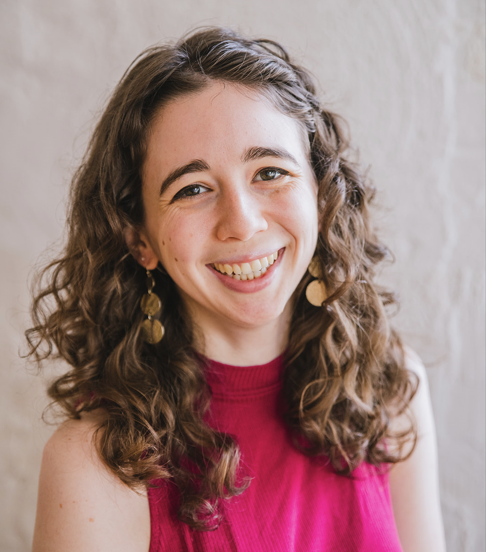
Natalie Lawson, MHSA (Moderator)
Senior State Policy Analyst, Georgetown
Natalie Lawson is a Senior State Policy Analyst with the Georgetown University Center for Children and Families, a non-partisan research center focusing on increasing access to health care coverage, specifically Medicaid and CHIP. She began her career as a community mental health social worker in Chicago for low-income adults with severe mental illnesses and substance use disorders. Natalie went on to hold various positions relating to health and behavioral health, including research and analysis at policy advocacy non-profits and working on federal and state technical assistance contracts. Prior to her current role, she was a Graduate Research Associate on the Healthy Michigan Project examining the impact of Michigan's Medicaid expansion in the state and an intern at the Center for Health and Research Transformation. Natalie holds an MHSA from the University of Michigan School of Public Health and a BS in Psychology from Loyola University Chicago.

Tony Davis, MSW
Accessibility Resources Program Manager, North Carolina Division of Services for the Deaf and Hard of Hearing
Tony Davis, MSW is the Accessibility Resources Program Manager for the North Carolina Division of Services for the Deaf and the Hard of Hearing, North Carolina Department of Health and Human Services. Tony received his Master’s Degree in Social Work from Gallaudet University. He has over 25 years of work experience in the health and human services field. His passion is breaking down barriers that impede communication access for Deaf, Hard of Hearing and DeafBlind populations and assistive technology of all types. Among the biggest accomplishments of the Accessibility Resources Program Team at DSDHH which he manages is the creation of a suite of telehealth guidance materials created for Deaf, Hard of Hearing and DeafBlind Patients, Patient Companions, American Sign Language Interpreters and Healthcare Providers.
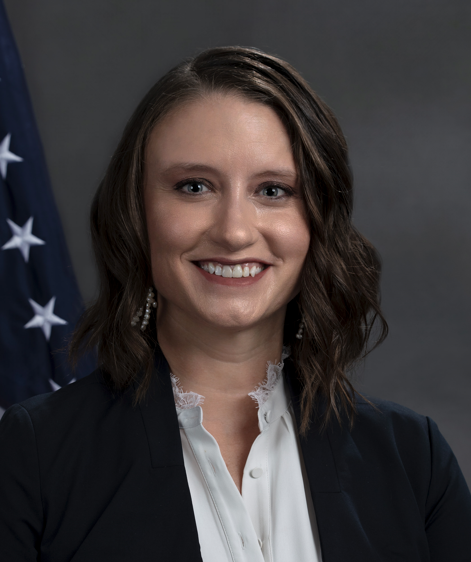
Lisa Bothwell, Esq.
Program Analyst, Office of Policy Analysis and Development, Center for Policy and Evaluation, Administration for Community Living
Lisa Bothwell is a Program Analyst in the Office of Policy Analysis and Development at the Administration for Community Living. Lisa provides recommendations on and develops health policies that promote independent living and incorporate disability rights and the rights of older adults based on feedback from the aging and disability networks, congressional reports, statutes, health studies, legislations, and other supporting data and materials. Areas of focus include telehealth, 1115 Medicaid waivers, effective communication, and assistive technology. Before ACL, Lisa worked as a Disability Integration Advisor in several different divisions of FEMA over six years, deploying to more than 15 disasters. Prior to joining the federal government, Lisa was a student attorney in law school focusing on Fair Housing Act conciliations and landlord-tenant racial and disability discrimination cases. Lisa also has experience working for several nonprofit organizations, including the Louisiana Protection and Advocacy agency and TDI. Lisa holds a Juris Doctor with a Civil Law Certificate from Loyola University-New Orleans and a B.A. in Mass Communications from Texas State University-San Marcos.
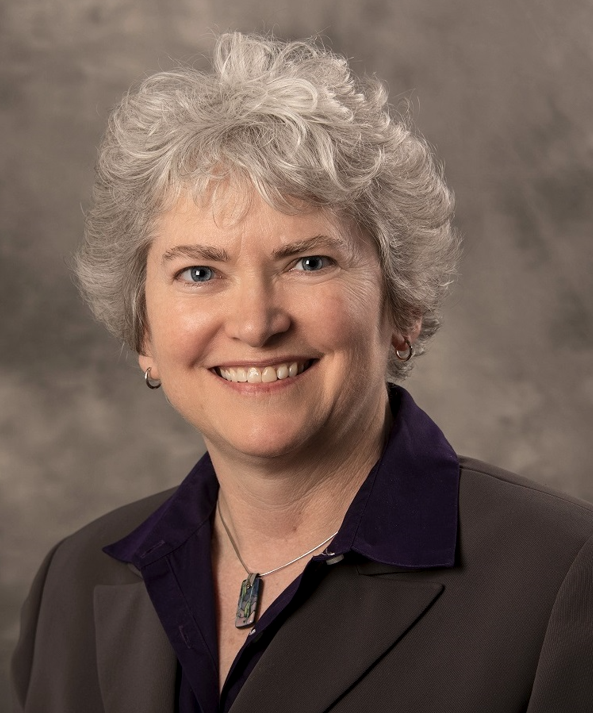
Jan Withers
Director, North Carolina Division of Services for the Deaf and Hard of Hearing
Past President, TDI
Board Member, National Association of State Agencies of the Deaf and Hard of HearingJan Withers is the Director of the Division of Services for the Deaf and the Hard of Hearing (DSDHH), North Carolina Department of Health and Human Services. The Division is charged with providing technical assistance on policy and practice and developing resources designed to foster communication access in a wide range of settings, including but not limited to health care, social services, law enforcement, emergency preparedness and response, housing, and public health.
Director Withers served for five years as the President and Chair of the Board of Directors for TDIforAccess, the nation’s leading advocate for full accessibility in Information and Communications Technology. She began her professional career as a Licensed Professional Counselor for Deaf and Hard of Hearing children, specializing in family systems. She is a founding member and has served on the Board of Directors for the National Association of State Agencies of the Deaf and Hard of Hearing.
Director Withers received her Master’s Degree in Counseling from Gallaudet University and a Bachelor’s Degree from Davidson College.
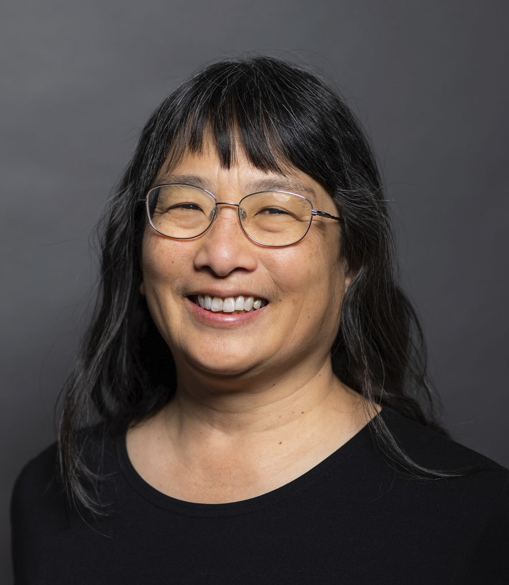
Kathy Wibberly, PhD
Director, Mid-Atlantic Telehealth Resource Center
Kathy is Director of the Mid-Atlantic Telehealth Resource Center (MATRC). TRC’s are federally funded to assist with telehealth program development and sustainability in order to increase access to quality care for rural and other underserved populations. Kathy is also Director of Research for the Karen S. Rheuban Center for Telehealth, Associate Research Professor of Public Health Sciences at the University of Virginia (UVA) School of Medicine and faculty member at the Healthy Appalachia Institute. Kathy’s public service career reflects over 30 years of experience in public health, public policy, program development, program evaluation and strategic planning. Kathy is an Appointed Member and Chair of the Rural Health Committee for the Universal Service Administrative Company (USAC) Board and is Vice President of the Virginia Telehealth Network Board. In her not so copious free time, Kathy enjoys playing competitive volleyball, recreational softball and trying her hand at wildlife photography.
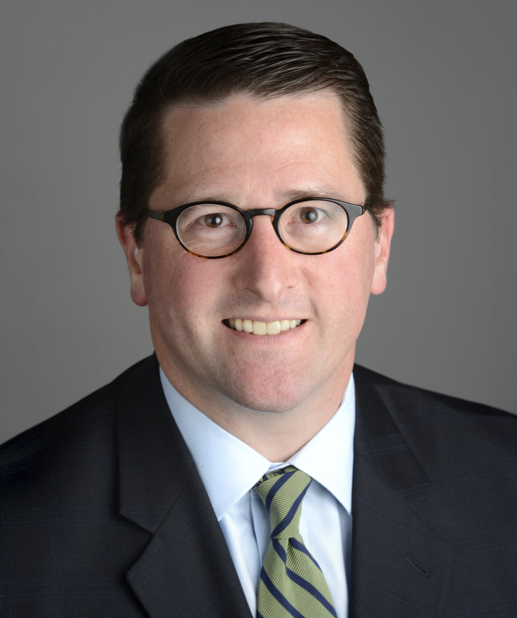
Robert C. Nutt. MD MPH
Medical Consultant - Disability Determination Services, Unit 21 - NC Department of Health and Human Services
Dr. Nutt currently serves the citizens of North Carolina as a Medical Consultant within NCDHHS Disability Determination Services. In clinical practice, Dr. Nutt has effectively applied clinical, educational, research, and public health themes to optimizing care for children with complex developmental and behavioral conditions and their families, demonstrating his dedication to the whole child and family and believes strongly in the accessibility and equitability of medical and public health services. Dr. Nutt has integrated telemedicine with clinic practice as school-based and community-based remote clinical encounters within residents’ continuity clinics, maintaining care of children with complex health needs during the COVID-19 pandemic, and most recently in private clinical practice as an integrated model for remote follow up encounters. Through his public service work, Dr. Nutt has driven improvements in health through state-wide initiatives, healthcare systems, regional and local agencies.
He has served on numerous task forces and advisory committees, including the American Academy of Pediatrics (AAP) Leadership Team on Early Hearing Detection and Intervention. In North Carolina, he was an invited member of the joint Institute of Medicine (NCIOM) Task Force, serves as the AAP Early Hearing Detection and Intervention (EHDI) Chapter Champion and on the Governor’s Council on the Deaf and Hard of Hearing.
-
Contains 2 Component(s) Recorded On: 12/14/2023
This panel discussion will explore design, implementation, and policy considerations in guaranteeing the equitable participation of patients with disabilities when accessing telehealth services.
This is part of the Advancing Health Equity Through Telehealth: AAMC Learning Series.
With the rapid rise in telehealth services since the COVID-19 pandemic and the stabilizing rates of utilization in the past year, telehealth has become a modality of care that is here to stay. Telehealth has brought many benefits to healthcare, especially for patients who face barriers to accessing care, such as limited mobility, lack of transportation, inability to miss work or find childcare, rurality, and limited access to specialists. However, telehealth can also pose a variety of challenges for patients with sensory disabilities, which include but are not limited to, inaccessible interactions between Zoom and screen-readers, a lack of captioning and ASL interpretation services, and more.
Ensuring accessible quality care through telehealth for people with sensory barriers is essential for Academic Health Systems to address. This panel discussion will explore design, implementation, and policy considerations in guaranteeing the equitable participation of patients with disabilities when accessing telehealth services.
Register here to access other session recordings in the series.
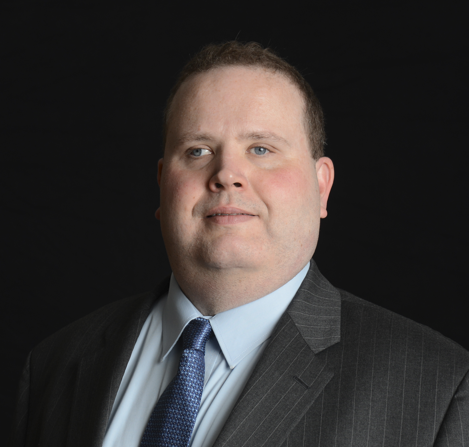
Gary C. Norman, Esq. L.L.M.
Co-chair of Advisors, Pieces of Me Foundation
Lawyer, Consensus-builder, Coach, and ColumnistGary C. Norman is a consultant as well as a public servant. Mr. Norman infuses his work with the invaluable perspectives gained from lived experience and through legal expertise, particularly in the realm of disability inclusion. With degrees from Washington College of Law at American University, Cleveland-Marshall College of Law at Cleveland State University, and from Wright State University, Mr. Norman provides clients an erudite approach and a wealth of knowledge, making his counsel a true asset. The handler of a guide dog, he has a passion for infusing considerations related to pets and service animals as part of public policy.
Mr. Norman is a part-time law professor of healthcare law and finance at Cleveland-Marshall. He serves as a member of the Healthcare Law Advisory Council.
Mr. Norman’s journey in public service began as a Presidential Management Fellow. He presently serves on the Board of the Presidential Management Alumni Association as its Attorney Advisor and Training Committee Co-Chair. He later served as Chair of the Maryland Commission on Civil Rights and as a Visiting Fellow at the Robert J. Dole Institute for Politics, advancing a positive conversation as to disability inclusion. Mr. Norman is a member of the Dean’s Leadership Council at the College of Liberal Arts at Wright State University.
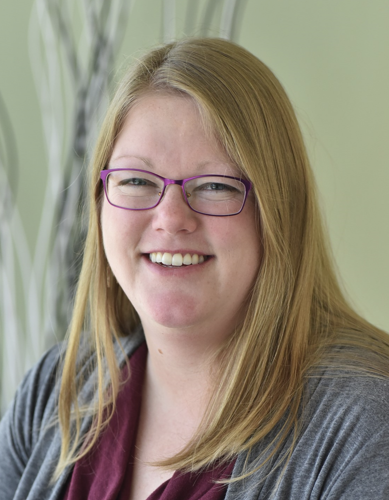
Lorraine Buis, PhD
Associate Professor, Family Medicine
Associate Professor, Information, School of Information
Editor-in-Chief, JMIR mHealth and uHealth, Michigan MedicineDr. Buis is an expert in the design, development, implementation, and evaluation of digital health tools for chronic disease self-management. She has worked in both consumer-facing and clinical informatics, with an emphasis on behavior change interventions for uncontrolled hypertension, diabetes, and cancer prevention. Much of her work is rooted in understanding and reducing health and healthcare-related disparities through a health equity lens. Dr. Buis is currently an Associate Professor in the Department of Family Medicine at the University of Michigan (UM) and she also holds an appointment in the UM School of Information. She serves as the Faculty Lead for the Telehealth Research Initiative in the UM Institute for Healthcare Policy & Innovation (IHPI) and is a fellow of the Society for Behavioral Medicine. Dr. Buis also serves as the Editor-in-Chief for JMIR mHealth and uHealth, one of the leading journals in health informatics (Impact Factor = 5.0), with a specific focus on mobile health.
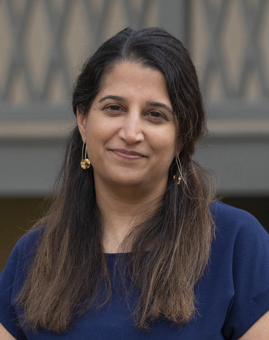
Rupa S. Valdez, PhD
Associate Professor, Systems and Information Engineering
Associate Professor, Public Health Sciences
University of VirginiaDr. Rupa Valdez is an associate professor at the University of Virginia with joint appointments in the School of Engineering and Applied Sciences and the School of Medicine. She is also a core faculty member of Global Studies and the Disability Studies Initiative. Dr. Valdez merges the disciplines of human factors engineering, health informatics, and cultural anthropology to understand and support the ways in which people manage health at home and in the community. Her research and teaching focus on underserved populations, including populations that are racial/ethnic minorities, are of low socioeconomic status or are living with physical, sensory, or cognitive disabilities. Her work draws heavily on community engagement and has been supported by the National Institutes of Health (NIH), the Agency for Healthcare Research and Quality (AHRQ), the National Science Foundation (NSF), and the US Department of Agriculture (USDA), among others. She has testified before Congress on the topic of health equity for the disability community and received the Jack A. Kraft Innovator Award from the Human Factors and Ergonomics Society (HFES) for her pioneering work in creating and developing the subdiscipline of patient ergonomics.
Among other appointments, she serves on the Board of Directors for the American Association of People with Disabilities, on PCORI’s Patient Engagement Advisory Panel, and as a member of the National Committee for Quality Assurance’s (NCQA) Health Equity Expert Work Group. Dr. Valdez also currently serves as an Associate Editor for Ergonomics, the Journal of American Medical Informatics Association (JAMIA) Open, and Human Factors in Healthcare. She has previously served on the AHRQ Director’s Roundtable on Patient Safety, as Chair of HFES Internal Affairs Division, and in multiple advisory roles for the National Academies of Science, Engineering, and Medicine. She is the founder and president of Blue Trunk Foundation, a nonprofit dedicated to making it easier for people with chronic health conditions, disabilities, and age-related conditions to travel. Dr. Valdez herself lives with multiple chronic health conditions and disabilities, which have and continue to influence her research, teaching, and advocacy. She has been quoted in publications ranging from Politico to Teen Vogue.
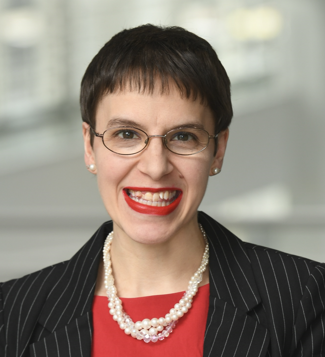
Laura C. Hoffman, SJD
Assistant Professor, Law
Co-Director, Center for Health Law and Policy
Cleveland State University College of LawDr. Laura C. Hoffman is an Assistant Professor of Law at Cleveland State University College of Law (CSU Law), Co-Director of the CSU Law Center for Health Law and Policy and Inaugural Fellow for the American Society of Law, Medicine, and Ethics (ASLME) 2022-23 Expanding Perspectives Fellowship Program. Prior, Dr. Hoffman served as a Senior Research Fellow with the Solomon Center for Health Law and Policy at Yale Law School where she contributed to the development of projects and events involving palliative care policy, Elder Law, brain injury, and Disability Law and Assistant Professor of Law/Faculty Researcher for Seton Hall University School of Law’s Center for Health and Pharmaceutical Law and Policy where her work focused on making policy changes to improve healthcare access for people with disabilities and children. Previously, Dr. Hoffman worked for Data Federal Corporation as a contract Attorney Advisor for the U.S. Department of HHS - Office of Medicare Hearings and Appeals in Cleveland, OH. She drafted appellate decisions for Administrative Law Judges involving legal disputes over Medicare payments. Dr. Hoffman’s legal scholarship has been published in numerous law reviews and journals including the Notre Dame Journal on Legislation, the Pittsburgh Journal of Environmental and Public Health Law, the Iowa Journal of Gender, Race, & Justice, and the American Journal of Law and Medicine. Her legal scholarship has been cited by the National Council on Disability and the RAND Corporation.

Ariele Belo
Co-Executive Director/Director of Deaf & Hard of Hearing Services
Hearing, Speech & Deaf Center (HSDC)
